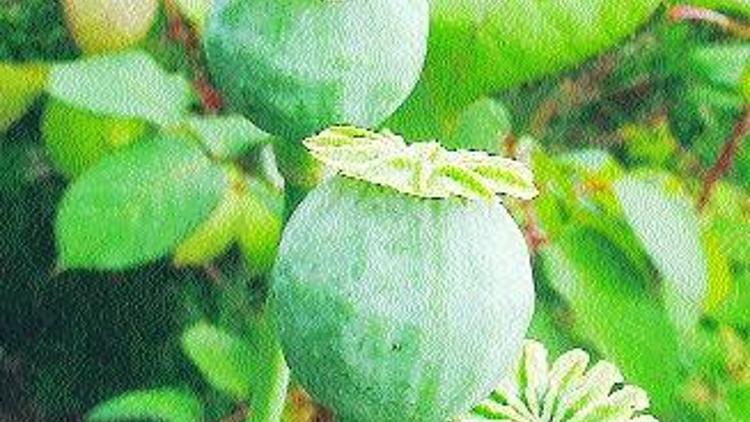A flower caught in drug war crossfire
Güncelleme Tarihi:

To the detriment of a large and important part of the ISTANBUL - Turkish cuisine and the lifestyle of communities, the cultivation of poppy plants has been gradually abandoned in Turkey over the past 30 years as a result of foreign intervention because of the opium produced from it.
The cultivation of poppy plants has been gradually abandoned in Turkey over the past 30 years as a result of foreign intervention. The United States has put pressure on Turkey to restrict cultivation because of the notorious narcotic opium, which is produced from the plant.
Aylin Öney Tan, a renowned food columnist in Turkey, recently won the Sophie Coe prize awarded by the Oxford Symposium on Food and Cookery for her thesis on the role of the poppy in local gastronomic and culinary practices. She said its cultivation should be defended against a number of global pressures.
She was commended by symposium judges for the light her local study had shed on a bigger issue, that of world agriculture and the destructive workings of globalization.
Every spring, the poppy flower lays a red carpet on the Anatolian landscape. Tan provided vivid descriptions of the flavor the flower brings to Turkish cuisine. She described children breaking poppy pods and nibbling on their seeds as a snack, poppy flavored Turkish delight, sweet poppy paste spread on bread, and poppy speeds in Turkish dishes such as börek, pide, katmer, açma and kofte which adds a subtle crunch. Moreover, Tan explained the economic significance of the poppy as a staple agricultural crop that has provided a sustainable livelihood for rural communities for almost 4,000 years.
"The more I investigated, the more I became aware of international interference in local agriculture, which invariably compromises fairness,’’ said Tan.
Tan gave detailed examples of the effects restrictions of poppy cultivation has had on Anatolian agriculture. She explained how the poppy has been overtaken by sugar beet, not indigenous to Anatolia and ill suited to the terrain. Moreover the epicenter of poppy cultivation in Turkey has always been Afyon, the name of the city meaning opium in Turkish, but as restrictions have been put into place, the city is no longer famous for its opium and is instead known for its high quality clotted cream. According to Tan, the quality of cream is linked to the poppy as the seed pulp of the poppy is the main fodder of livestock and important in the diet of buffaloes.
Today in Turkey, all poppy cultivation is regulated and zones of cultivation are determined by a council of ministers. The government is still bound by restrictions contained in agreements signed with the United States. The seeds merely suffice to meet local culinary consumption and the extensive bureaucratic paperwork farmers have to go through imposes a heavy burden on villagers.
Aylin Tan claims, that only when it is recognized that neither technology nor the market can produce the taste a poppy plant gives to Afyon’s dairy and meat products, only then will there be a chance of allowing these flowers to blossom in the future.Brief political history of Turkey’s opium licensing system.
In the 1960’s Turkey was one of the world’s main opium producing countries. During this period the United States faced heroin consumption problems by American soldiers in the Vietnam War.
In 1961, those opium-producing countries under the framework of United Nations signed an agreement to control opium production. In 1967, Turkey signed the agreement as well and opium production became subject to permission. Turkey gradually decreased the number of provinces where poppy could be produced until 1972. The United States in 1971 demanded Turkey to forbid poppy production because of drug smuggling.
The government of that period under Nihat Erim banned poppy production in 1972. However in 1974, Prime Minister Bülent Ecevit decided to allow controlled poppy production, which was one of the major income sources of farmers in Anatolia, while opium production remained forbidden.

